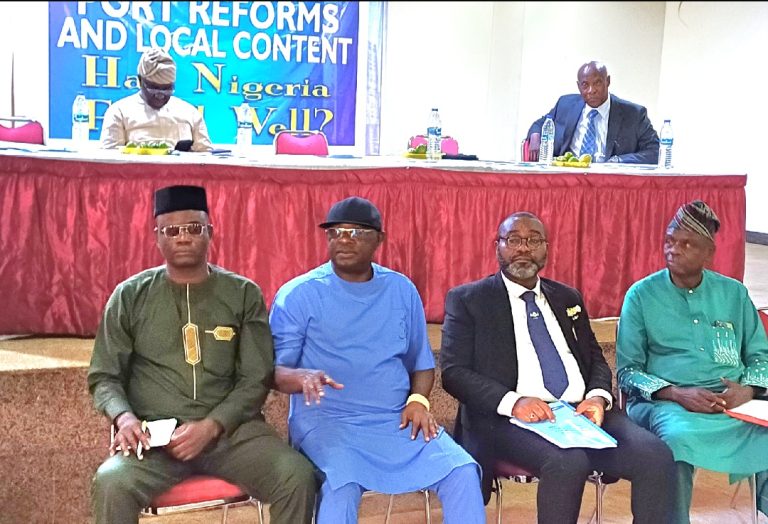
Stakeholders at the PortNews Summit 2024 have criticized Nigeria’s port reforms, and accused government and foreign concessionaires of sidelining indigenous operators and undermining local content development.
The summit, held on Wednesday in Apapa, Lagos, brought together maritime experts, who expressed frustration over policies that have weakened Nigeria’s maritime sector while enriching foreign interests.
In his welcome address, Mr. Wale Oni, Publisher and Editor-in-Chief of PortNews, lamented the erosion of Nigeria’s maritime legacy. He described how, in the past, Nigerian-owned vessels proudly operated globally, and bonded terminals played a vital role in port decongestion. “Today, that glorious past is gone. Port reforms have left Nigerian operators as mere on-lookers, unable to compete with foreign-dominated concessionaires,” Oni said. He called for pragmatic strategies to rebuild trust and cooperation between concessionaires and local terminal operators.
He urged stakeholders to push for accountability and actionable solutions. “The challenges are significant, but they are not insurmountable. If we fail to act, Nigeria risks permanently losing control of its maritime sector to foreign interests,” he said.
Capt. Emmanuel Ihenacho, a former Minister of Interior and respected maritime stakeholder, acknowledged that the reforms introduced efficiency and private investments but argued that they were poorly-implemented. “The landlord model has prioritized foreign interests over Nigerians. Local content development exists only on paper and has not been practiced effectively,” Ihenacho said. He also highlighted the failure to utilize facilities like the Dala Inland Dry Port, which remains inactive 18 months after its commissioning.
The 2006 concessioning of Nigeria’s ports, designed to modernize operations, was heavily criticized for excluding bonded terminal operators. Aare Haruna Omolajomo, General Secretary of the Association of Bonded Terminal Operators, said, “Concessionaires have refused to work with us. Out of 25 registered bonded terminals, five have shut down due to crushing debts. This is an economic betrayal that continues to impoverish local players.”
The poor enforcement of the Cabotage Act, meant to prioritize Nigerian-flagged vessels in coastal trade, was another point of concern. “This law could have revolutionized local shipping but remains a paper tiger due to poor implementation. Even the Cabotage Vessel Financing Fund is inaccessible to indigenous operators,” said Dr. Muda Yusuf, CEO of the Centre for the Promotion of Private Enterprise (CPPE).
Yusuf also decried the systematic exclusion of Nigerian operators from the maritime ecosystem. “Indigenous players have been reduced to spectators while foreigners dominate. This is a national failure that needs immediate correction,” he said. Yusuf called for policies similar to the oil and gas sector’s local content law, which has successfully empowered Nigerian players.
Participants proposed several solutions, including renegotiating concession agreements to mandate patronage of indigenous bonded terminals, enforcing compliance with the Cabotage Act, and introducing executive orders to protect local jobs. Capt. Ihenacho emphasized the importance of capacity-building initiatives and government-backed investments in technology to make Nigerian operators competitive.
The summit ended with a unanimous call for reforms to prioritize local operators and restore Nigeria’s maritime sector to its former glory. Stakeholders warned that failure to address these issues would deepen the marginalization of Nigerians in the sector and jeopardize the nation’s economic sovereignty.















